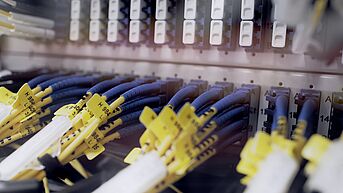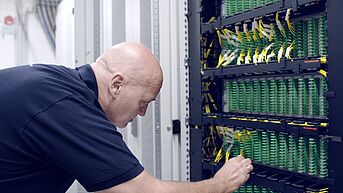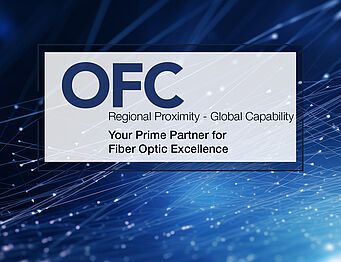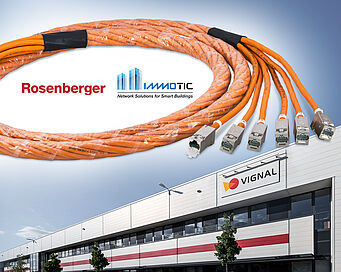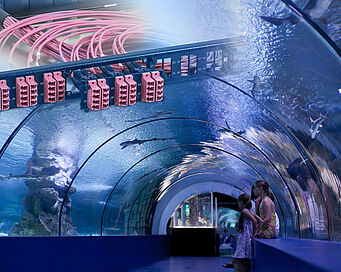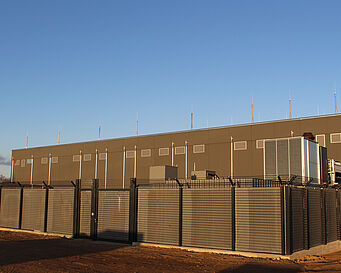Boosting innovation in the Leipzig economy
The DE-CIX service offering includes various interconnection services, including GlobePEER, GlobePEER Remote, DirectCLOUD, or VirtualPN. Thanks to its connection to the main DE-CIX site in Frankfurt, the GlobePEER Remote Service permits peering with the networks of other DE-CIX locations such as Berlin, Düsseldorf, Hamburg or Munich. “DE-CIX is like a large data highway link. Everything is much faster for the clients. And this attracts new users,” says Michael Freitag, Group Head for Data Centers, envia TEL GmbH.
Thanks to peering, Internet service providers, content providers, network service providers and companies that have their own networks can connect to one another through an Internet exchange node and are therefore able to benefit from direct, cost-neutral data exchange. As in the case of the DE-CIX in Frankfurt, where more than 1,000 networks now interconnect. In addition, regional peering permits faster, economically more agile connectivity within the region itself as well as between the region and the rest of the world. All in all, peering brings together a range of advantages for all types of organization; starting with small hosting providers, through Internet service providers (ISPs) and content delivery networks and on to mid-sized and large companies.
envia TEL’s Managing Director, Stephan Drescher, summarizes the concept as follows: “The DE-CIX Leipzig offers us the shortest path to connect to international data exchange points. We can compare the DE-CIX Leipzig with air travel: The data exchange point in Leipzig is like a destination that is now flown to by travellers from all over the world. There are no longer any transfer flights from intermediate airports. In the same way, data in the future will no longer have to stop over at a remote exchange point. Instead, there will be a direct connection to eastern Germany. This greatly cuts the latencies of the Internet connections of the connected companies, local authorities and schools in the region and makes these connections faster, more stable and of a higher quality.
Services and cabling solutions from a single source
As was previously the case for the data center Leipzig, the infrastructure for the Internet node was planned, delivered, installed and commissioned by Rosenberger OSI. Thanks to the provider’s comprehensive project management, planning and implementation activities, envia TEL was able to call on expert technical consultancy and support at every stage of the project. “The advantage to customers is that they can source everything they need for their projects from a single supplier. We can supply both the equipment and the associated services. That simplifies many aspects of customers’ projects and workflows,” explains Andreas Kluge, Sales Team Germany, Rosenberger OSI.
Narrow timeframe for implementation
One challenge during this project was the tight timeframe. But despite this, the team from Rosenberger OSI was able to complete its tasks on time. The “one-stop shop” concept showed its worth here. Because everything was provided by a single supplier, there were no losses of time or information and no warranty queries.


